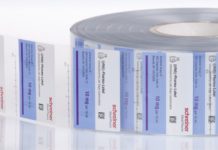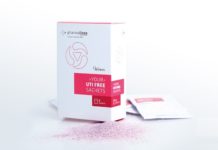Celgene Corporation announced that data from the phase III RELIEF™ clinical trial of OTEZLA® (apremilast) in patients with active Behçet’s Disease with oral ulcers were presented in a late-breaking oral presentation at the 2018 American Academy of Dermatology (AAD) Annual Meeting.
The results showed statistically significant reductions in oral ulcers with apremilast 30 mg twice daily (BID) versus placebo through week 12. OTEZLA (apremilast) is Celgene’s oral selective inhibitor of phosphodiesterase 4 (PDE4).
Behçet’s Disease is a rare, chronic, multi-system inflammatory syndrome. Oral ulcers, the most common manifestation of Behçet’s Disease, can be disabling and have a substantial effect on quality of life. This study primarily evaluated the effect of apremilast on recurring oral ulcers in patients with active Behçet’s Disease who were previously treated with at least one topical or systemic medication.
“Reducing oral ulcers, which are painful and can negatively impact quality of life, is an important goal in the treatment of people with Behçet’s syndrome,” said Gulen Hatemi, M.D., Associate Professor, Istanbul University Cerrahpassa Medical School. “These findings suggest that apremilast, which reduced oral ulcers and oral ulcer pain, and improved disease activity in this pivotal study, has the potential to be a treatment option for patients with active Behçet’s syndrome with oral ulcers, for which few treatment alternatives exist.”
In the study, a total of 207 patients were randomized to apremilast 30 mg BID or placebo. At week 12, the area under the curve (AUC) for the number of oral ulcers was statistically significantly reduced with apremilast 30 mg BID versus placebo (129.5 vs. 222.1; P < 0.0001), the trial’s primary endpoint. The AUC assesses the change in the number of oral ulcers over time, accounting for the clinical characteristic that oral ulcers repeatedly remit and recur. Statistically significant improvements were also seen with apremilast in multiple secondary endpoints, including oral ulcer pain (P < 0.0001), overall disease activity (Behçet’s Syndrome Activity Score: P < 0.0001; Behçet’s
Disease Current Activity Index: P=0.0335) and quality of life (P=0.0003).The most common adverse events (AEs) observed in the trial were diarrhea (41.3 percent with apremilast, 19.4 percent for placebo), nausea (19.2 percent with apremilast, 10.7 percent for placebo), headache (14.4 percent for apremilast, 9.7 percent for placebo) and upper respiratory tract infection (11.5 percent for apremilast, 4.9 percent for placebo).
The safety profile was consistent with the known safety profile of apremilast.Celgene plans to submit supplemental New Drug Applications for apremilast 30 mg BID for the treatment of active Behçet’s Disease with oral ulcers in the U.S. and Japan in the second half of this year. The Company also plans to submit a Type II Variation to the Marketing Authorization Application in the EU in 2019.
“The positive phase III findings in Behçet’s Disease reflect the unique aspects of the profile of OTEZLA® (apremilast) 30 mg across inflammatory-related diseases,” said Terrie Curran, President, Celgene Inflammation and Immunology. “OTEZLA® (apremilast) 30 mg has the potential to provide a clinically meaningful new treatment option for patients and doctors and to become the first product indicated specifically for the treatment of active Behçet’s Disease with oral ulcers.”
Apremilast is not approved for the treatment of Behçet’s Disease in any country.
About the RELIEF™ Study
The RELIEF™ study is a phase III randomized, placebo-controlled, double-blind study evaluating apremilast 30 mg BID in 207 patients with active Behçet’s Disease who were previously treated with at least one topical or systemic medication. This 52-week study was conducted at 63 sites across 10 countries. The primary endpoint was the area under the curve (AUC) for the number of oral ulcers at week 12. Secondary objectives of the study included change from baseline in pain of oral ulcers, Behçet’s Syndrome Activity Score, Behçet’s Disease Current Activity Index and Behçet’s Disease quality of life score at week 12.
About Behçet’s Disease
Although the root cause is unknown, Behçet’s Disease is associated with abnormalities of the immune system and inflammation of the blood vessels. Behçet’s Disease is characterized by recurrent oral and genital ulcers, skin lesions, uveitis, arthritis, vasculopathy, and central nervous system and gastrointestinal involvement.
Prevalence of Behçet’s Disease is highest in the Middle East, Asia and Japan. Behçet’s Disease has been classified in the U.S. as a rare or “orphan” disease by the National Institutes of Health. At this time, there are no approved therapies to treat Behçet’s Disease in the U.S.
About OTEZLA®
OTEZLA® (apremilast) 30 mg tablets is an oral small-molecule inhibitor of phosphodiesterase 4 (PDE4) specific for cyclic adenosine monophosphate (cAMP). PDE4 inhibition results in increased intracellular cAMP levels, which is thought to indirectly modulate the production of inflammatory mediators. The specific mechanism(s) by which OTEZLA exerts its therapeutic action in patients is not well defined.
About Celgene
Celgene Corporation, headquartered in Summit, New Jersey, is an integrated global pharmaceutical company engaged primarily in the discovery, development and commercialization of innovative therapies for the treatment of cancer and inflammatory diseases through next‐generation solutions in protein homeostasis, immuno‐oncology, epigenetics, immunology and neuro‐inflammation. For more information, please visit www.celgene.com



























